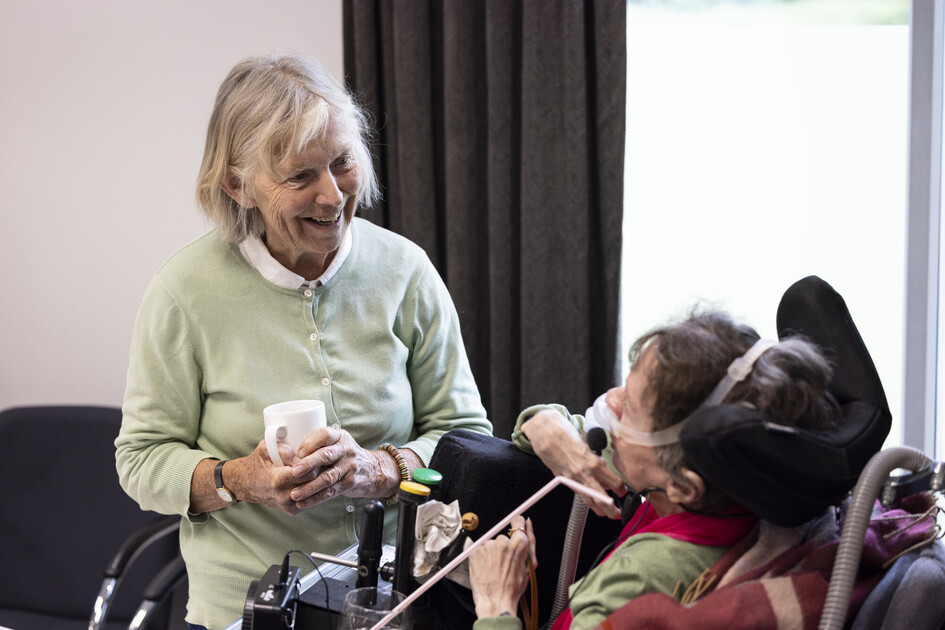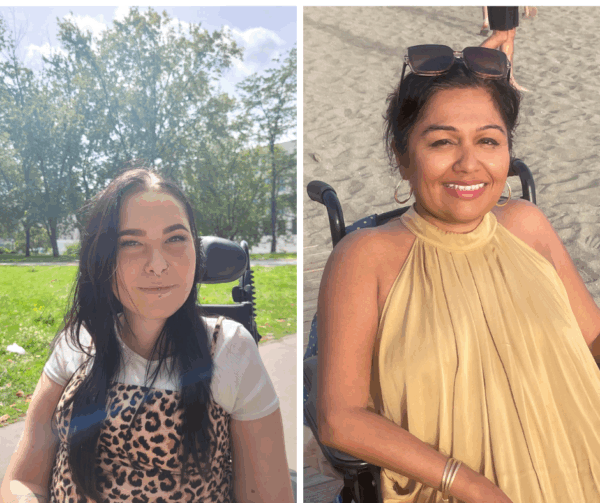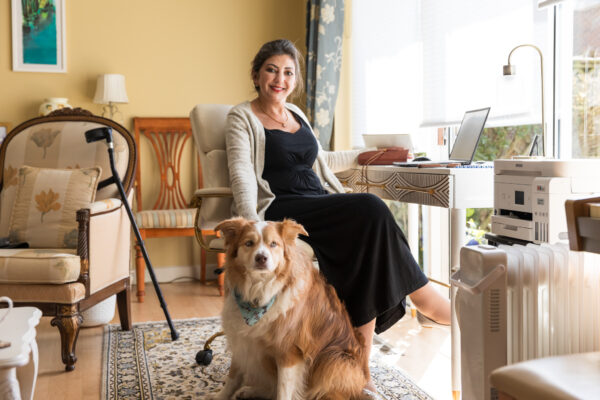For so many in our community, the small difficulties faced in society can be just as challenging as the muscle wasting condition itself. We asked you to share the everyday frustrations you experience, and some common themes came through like accessibility, a lack of understanding, and managing care.
The things people don’t see: the everyday challenges of living with a muscle wasting condition

Living with a muscle wasting condition doesn’t just shape how we move; it affects how we plan, interact, and exist in a world that wasn’t built with us in mind. It’s the unseen, constant effort that can wear us down.
Planning an outing shouldn’t feel like an impossible task
You told us one of your biggest barriers is accessibility:
“All the extra research involved in going anywhere new due to toilets and accessibility.”
“Accessible toilets. It’s really frustrating when we go out for a meal and the toilets are either upstairs or downstairs!”
Before a meal out, shop visit, or casual catch-up at a café, we have to do more research than some people do for their wedding.
We start googling. Scrolling through photos of narrow aisles, high counters that we won’t be able to see over. Zooming into photos of the front of buildings, trying to work out if that’s a step you see. We often call ahead to check precisely what the layout looks like, and if their disabled toilet is currently filled with spare highchairs or cleaning supplies. Yet we still often arrive to find they haven’t taken our access needs seriously.
There are ways we can mitigate these issues: using Euan’s Guide to check if the venue accessibility has been reviewed by someone with a disability, purchasing a portable ramp that can hang on the back of our wheelchair, using the Changing Places map to find the nearest disabled toilet that is accessible for all… but in 2025, should we still be made to feel like an inconvenience just for leaving our home?
It doesn’t matter how many times we explain – most people can’t understand
“Having to explain it in grave detail to another person so they get it. Yet they still won’t.”
“People that don’t understand what you are going through and tell you that you’re just overreacting.”
“The hiddenness of my LGMD. Because I’m still able to walk, people don’t think I have a disability, but they aren’t seeing the stairs I can’t climb, or the long walks I can’t do, and all the beautiful but inaccessible places I can’t visit. The public transport I can’t use. The shops, restaurants and cafes that all have steps to enter.”
There’s a specific kind of exhaustion that comes with having to explain your condition in detail, so someone might begin to understand. And even then, many don’t.
For those of us that are ambulatory, people assume because we look ‘fine’, that we are ‘fine.’ They bump into us, not realising how easily we get knocked over. They don’t realise the level of fatigue we go through just to walk from one end of the street to the other. For those of us who are more visibly disabled, people feel they have a right to ask, “what’s wrong with you?” and other invasive questions. We’re caught between wanting to educate people and needing to protect our mental wellbeing.
Sometimes it’s important to remind ourselves we don’t owe anyone an explanation. Say as much or as little as you want. Set your boundaries. Let go of the pressure to make others ‘get it.’ Because some people just can’t. And when all the explaining gets a little overwhelming, it’s important to have friends in the muscle wasting and weakening community. People who don’t need the backstory, they just know.
Being a manager… except you didn’t apply for the job
“Dealing with personal assistants and the admin that comes with it.”
“Care agencies not taking you seriously when you require staff that can drive, so you don’t have a social life and are confined to your house for months.”
“Lack of understanding about care and our feelings and frustrations of lack of carers due to poor pay.”
If we require carers, we become a manager. Even if we have support through a care agency, we still have to check rotas, deal with the stress of people calling in sick, and case managers sometimes sending carers that aren’t appropriately trained. We’re expected to adjust to having strangers come into our home and support us with the most intimate of tasks. Learning to converse with all different types of personalities is a skill in itself, and we often end up emotionally supporting someone who’s there to support us.
Learning to advocate for yourself is key – not just for your physical needs, but your emotional needs too. But be kind to yourself; this takes time.
It all adds up
An outsider may see a person in a wheelchair eating lunch in a café, but what they don’t see is the two hours it took us to get out of bed and dressed, after the carer turned up 30 minutes late. They don’t see us calculating how much we can drink and what time we’ll need to leave to make sure we can find an accessible toilet. And they don’t see the anxiety and research we did a whole week before this lunch just to work out if the café was truly accessible, because one of the friends in our group thought it “would be nice to try somewhere new.” This is the part no one sees – the invisible effort behind every “Yes, I’ll come.”
Anyone would be exhausted if they had to face this every day. So, be patient with yourself. Allow yourself time to get frustrated. To grieve. To rest. And be proud of yourself, that every day you choose to get up and advocate for what you deserve in a world that wasn’t built with us in mind.


